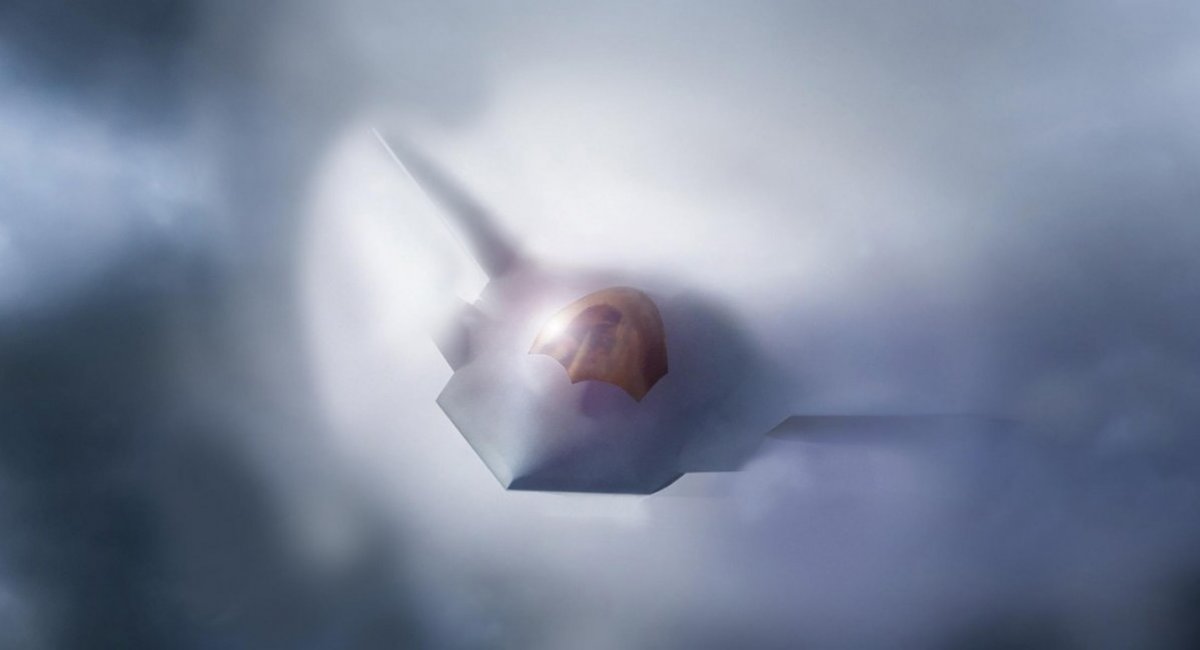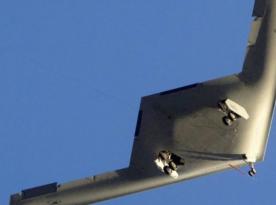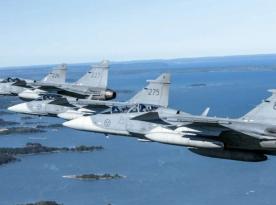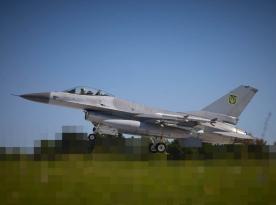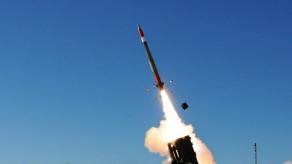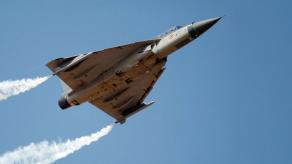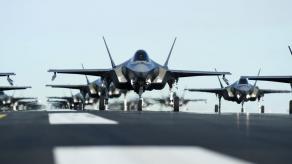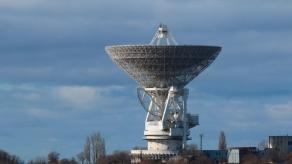American military has published first details on the Boeing F-47 sixth-generation fighter's technical specifications and capabilities. Among them, one will be of critical importance in the Indo-Pacific as the main theater of U.S. operations.
The U.S. Air Force Chief of Staff Gen. David Allvin showed an infographic saying that the F-47 will have a combat radius of over 1,000 miles, or 1,600+ kilometers. In addition, the aircraft will have a maximum speed of over Mach 2 and incorporate stealth technology level designated as Stealth++.
Read more: Saab Eyes Breakthrough Year for Gripen Sales, Targets Thailand After Colombia Deal
Our @usairforce will continue to be the world’s best example of speed, agility, and lethality. Modernization means fielding a collection of assets that provide unique dilemmas for adversaries—matching capabilities to threats—while keeping us on the right side of the cost curve. pic.twitter.com/vqjxCdBYid — General David Allvin (@OfficialCSAF) May 13, 2025
Firstly, the combat radius of 1,600 km is a truly stunning parameter that is more suitable for tactical bombers than fighters. It would allow the U.S. military to reduce the number of airborne refueling tankers and keep them farther from the frontline.
This, in particular, explains why the Pentagon shut down the NGAS stealth tanker program because with F-47, the existing ones can operate just fine far beyond the reach of Chinese anti-aircraft weapons.
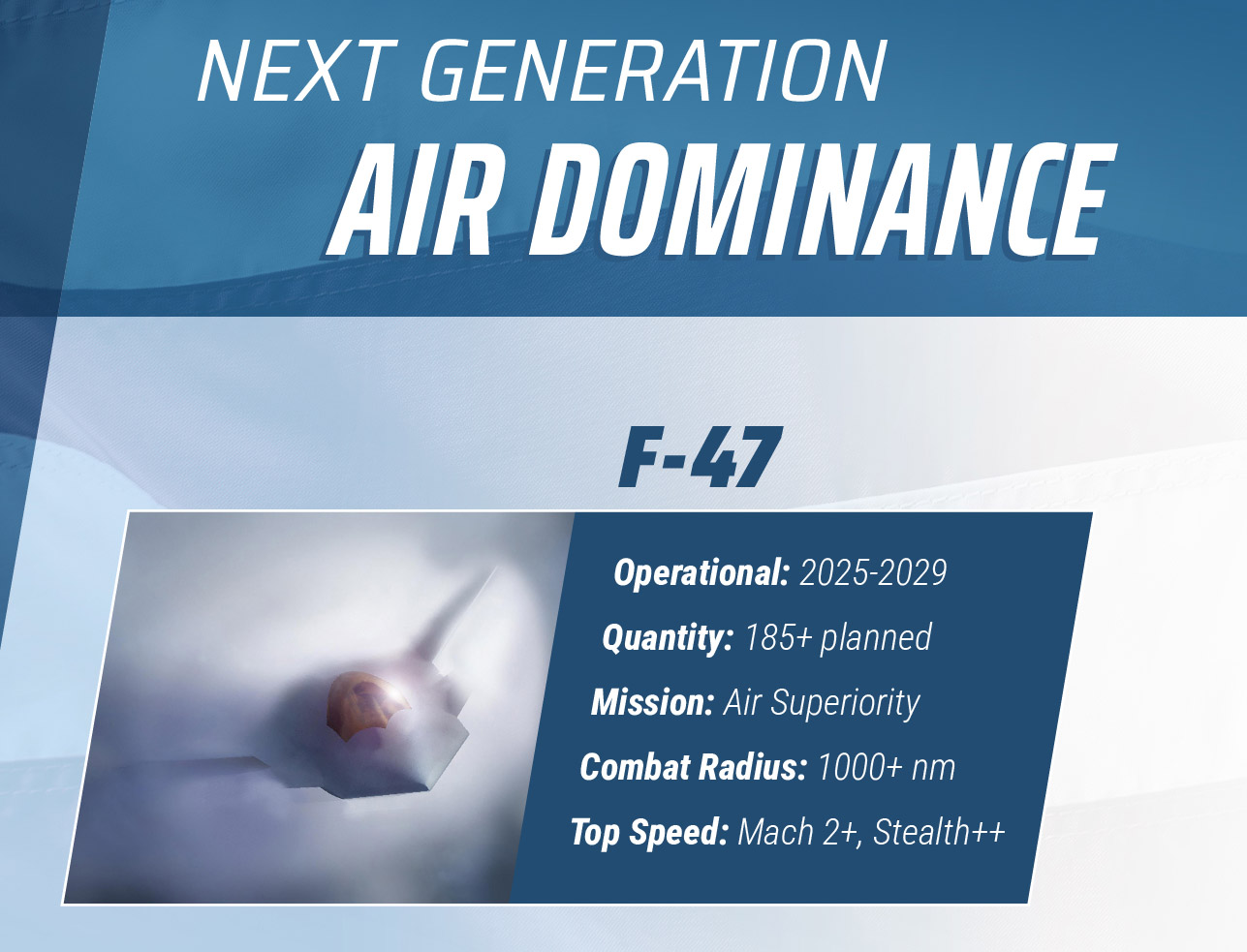
A noteworthy detail is how the USAF commander described the F-47's mission: securing air superiority. It's much more niche than the multirole capability offered by the F-16 and F-35 fighters from the previous generations. This highly specialized functionality aligns more closely with the current duty of the F-22, which the F-47 is set to replace. The features allowing it to perform this task and the scope of equipment capabilities is yet to be revealed though.
The way USAF has outlined the levels of fighter stealth are another significant detail. While the F-35A is attributed with a simple Stealth, and the F-22 with Stealth+, the novel F-47 features Stealth++. What exactly lies behind these pluses in quantifiable terms is unknown, as is the effective radar cross-section of American stealth jets. The F-35, however, is said to have the RCS of 0.005 m² in the frontal view, and the F-22 is rumored to have RCS of 0.0001 m². Logically, the radar signature of the F-47 should be even less detectable.
In addition, the published infographic also shows the characteristics of the future loyal wingman, a drone companion in development. The U.S. Air Force is yet to choose between the YFQ-42A from General Atomics and the YFQ-44A from Anduril. Regardless, both should have a combat radius of 700+ miles (over 1,100 km). The planned acquisition quantity of these loyal wingman drones counts as many as 1,000+, while the number of manned F-47 fighters is more modest: 185+ units.
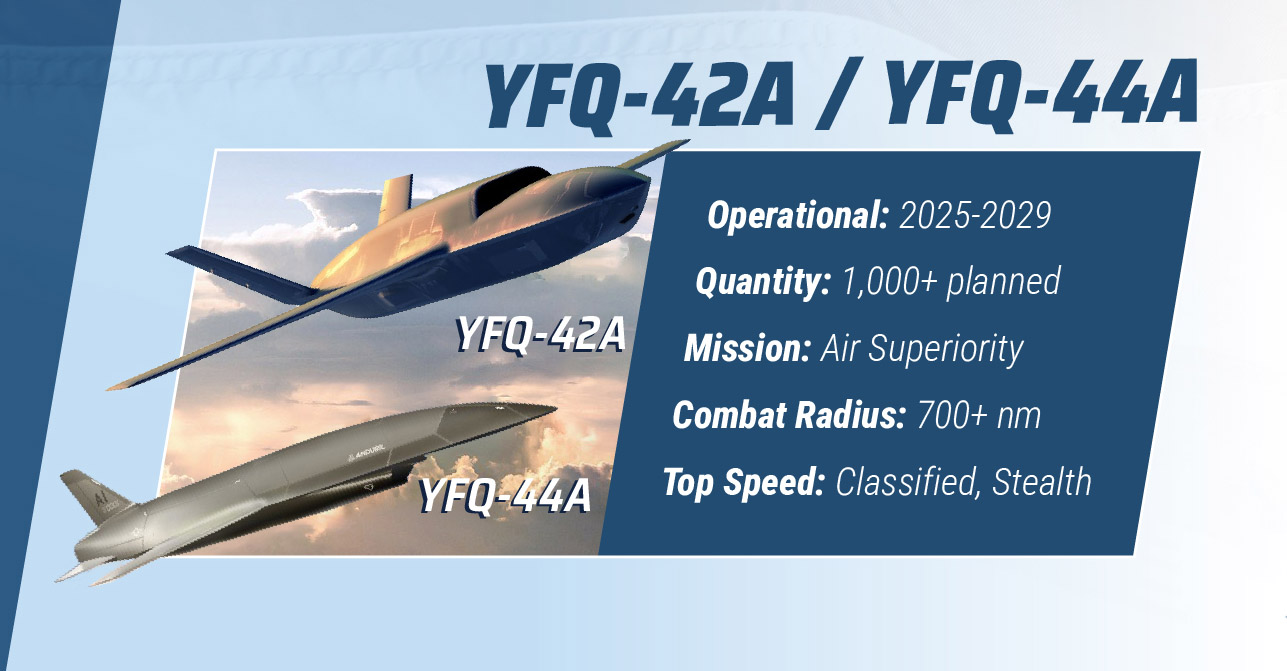
Earlier, Defense Express noted that all the images of F-47 available so far are but illustrative renderings, and the real looks of the American 6th-gen fighter may substantially differ in reality — a deliberate choice by the manufacturer and customer to prevent adversaries from assessing the jet's features and capabilities. We took a look at the X-36 and the Bird of Prey as examples of what the F-47 could resemble.
Meanwhile, Lockheed Martin, as the aviation maker that lost the competition for the USAF new fighter, decided to revamp its F-35, bringing the combat system to a tentative "5+ generation" level and promised to deliver a "Ferrari" of an aircraft.
Read more: Lockheed Martin Announced 5+ Generation Fighter Development Based on F-35, Promised to Deliver a "Ferrari"




